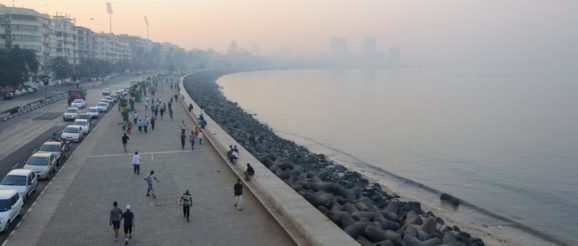Maharashtra’s road to cleaner air, curbing pollution runs through innovation, experimentation

As the wealthiest and most industrialized state in India, the policy challenges of Maharashtra are often a glimpse into the future for other states looking to catch up. In the same vein, many solutions developed by Maharashtra provide a road-map for other governments.
Today, the state faces several serious environmental challenges. With 17 cities including Mumbai, Maharashtra tops the environment ministry’s list of 102 “non-attainment cities”, where pollution levels aren’t meeting the required air quality protocols. Bringing Maharashtra’s particulate concentrations down to the WHO guideline would increase average life expectancy of its citizens by 2.9 yrs, according to the Air Quality Life Index.
That said, action has been taken to address the issue. A couple of years ago, the state kicked off the Maharashtra Star Rating Program, involving the mandatory public rating of several large industrial plants, with a growing number of factories coming into the fold. Under the scheme, first-time factory pollution data was made public, which has since been followed by the states of Odisha and Jharkhand. Both states are now developing their own rating programs. Likewise, a number of river water quality action plans have been drawn up, though the jury is still out on how effective they have been.

Nevertheless, it is clear that much more needs to be done.
Furthermore, the challenge that lies ahead is to find ways of meeting environmental goals, while encouraging rapid economic growth. Environmental regulation in India has had a history of heavy-handedness and inflexibility, based mostly on a command-and-control policy enforced with criminal penalties.
On the surface, these are strong laws. In practice, they have led to widespread non-compliance and a view of environmental objectives as being inherently incompatible with growth. One way out of this is to adopt market-based instruments – the use of civil charges and cap-and-trade schemes. The state of Gujarat has already begun an emissions trading pilot and Maharashtra is well placed to initiate and expand these methods.
It was unfortunate that environmental challenges — air and water pollution included – found little room on campaign trails in the recent assembly elections. But with a new government now, there is hope. Cleaning up the environment is not an optional goal since pollution also has a direct impact on health, growth and the economy. Study after next has pointed to the generalized health risks of such severe air pollution with additional new research suggesting that the effects of pollution may extend to mechanisms such as reduced crop yields, lower industrial labor productivity, and reduced cognitive skills and educational outcomes. In other words, the apparent trade-off between environmental protection and economic growth is something of a Hobson’s choice. Maharashtra cannot become richer without cleaning up its air and water but doing so successfully will require innovative new policy instruments.

Once we recognize these facts, it also becomes urgent that Maharashtra ushers in a culture of experimentation and innovation. This is not typically how pollution control boards function, with a prominent exception being the Star Rating Program. This project is being implemented as a pilot, based on a randomized control trial design, such that we will soon know exactly how successful the project was, and how to improve it. That said, this pilot cannot be an outlier.
Embracing experimentation is the only reliable way in which governments can create a culture that encourages bold new ideas. It is to be hoped therefore that before and during the election, reform of environmental regulation is given due attention. While several aspects of industrial regulation were transformed in 1991, liberalization may have left the environment sector behind. Maharashtra now, with a new government has a golden opportunity to change this state of affairs.
The author is the Executive Director (South Asia) for the Energy Policy Institute at the University of Chicago. Anant works at the intersection of environmental economics and engineering, with on-going research on a variety of areas including environmental regulation, air pollution, climate change, energy efficiency, electricity and renewable energy.
